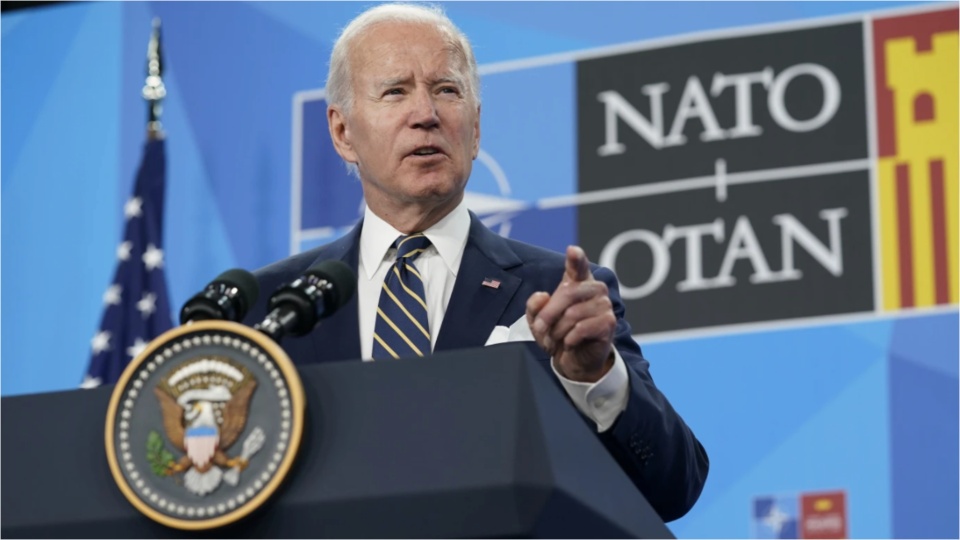
NATO Secretary General Jens Stoltenberg on March 14 released his Annual Report for 2023, and the document mentioned China more frequently and with a more hostile tone compared to the one he released last year. Chinese experts said that the words in the report are similar to those in U.S. policy documents about “strategic competition” with China, so in the future, to what extent the U.S.-led military alliance will have friction with China depends on the development of China-U.S. relations.
NATO needs to find or create external enemies to ensure its own existence and expansion, and it finds Russia is no longer enough, so now it increasingly targets China. This is a dangerous trend for global security and world peace, Chinese analysts said. But they also pointed out that NATO members, especially European ones, care more about Europe and have no intention of getting involved too much in the Indo-Pacific or other regions. As a result, hostility toward China does not reflect the common view of all NATO members.
On NATO’s relations with China, the document said: “NATO and the People’s Republic of China (PRC) are not partners. The Alliance does not consider the PRC an adversary and remains open to constructive engagement.” This is the same as what was said in the annual report for 2022, which was released in March 2023.
However, the latest report had more details about how NATO sees China with a more hostile perspective, despite saying it does not view China as an adversary. “NATO’s Strategic Concept makes clear that Allies consider the PRC’s stated ambitions and coercive policies a challenge to Allied interests, security, and values,” it said.
“At the Vilnius Summit, NATO leaders addressed the PRC’s opaque military developments, technological advances, malicious cyber and hybrid activities, confrontational rhetoric, and disinformation,” the report said. “The deepening strategic partnership between the PRC and Russia remains concerning and runs counter to Allied values and interests.”
Li Haidong, a professor at the China Foreign Affairs University, says that the U.S.-led military bloc has always needed external enemies to legitimatize its expansion, and unfortunately its approach has already provoked a war in Ukraine. In other words, the stronger NATO becomes, the more dangerous the world could become.
“Now it targets China, which serves the similar interest of hegemony. It tries to make China look more like a threat and to distort China’s relations with Russia while ignoring China’s neutral stance that is similar to many other non-Western countries around the globe. It also ignored China’s diplomatic efforts to mediate in the Ukraine crisis,” Li noted.
China and European countries have neither military tension nor geopolitical friction, but the reason why NATO hypes the China threat theory is because of the U.S., analysts argue. If there is any potential problem between China and NATO, it would be provoked by the U.S., as Washington in recent years has increased its military activities around China and its interference in affairs affecting China’s sovereignty and national security, such as the South China Sea issue and Taiwan question, said a Beijing-based Chinese military expert who requested anonymity.
“China is watching our actions closely. China does not share our values, it challenges our interests, and Beijing is increasingly aligned with Moscow. We will continue to trade and engage with China, but we must manage the risks and prepare for enduring competition,” the NATO report said.
“China and Russia are not in an alliance, but why did NATO say the two countries are increasingly aligned?” Li asked. “Because NATO needs to hype a threat that does not actually exist to keep its members united.” He said, “This is why it distorts China-Russia ties, even though China has never changed its neutral stance on the Ukraine crisis.”
This NATO attitude is the same as that of the U.S. toward China, as Washington sees China as its top strategic competitor. But this might not reflect the common view of all NATO members, as many of them are European countries that have very deep and intertwined relations with China.
“NATO members can’t even speak with one voice on how to deal with Russia,” the Beijing-based military expert said. “And on the Asia-Pacific region, they will share less common ground when it comes to the issue of competing with China.”
When the U.S. tries to push topics like boosting cooperation between NATO and its allies in Asia-Pacific to target China, there will be many internal problems as many European members want the alliance to stay focused on Europe.
Global Times (international distribution)
We hope you appreciated this article. At People’s World, we believe news and information should be free and accessible to all, but we need your help. Our journalism is free of corporate influence and paywalls because we are totally reader-supported. Only you, our readers and supporters, make this possible. If you enjoy reading People’s World and the stories we bring you, please support our work by donating or becoming a monthly sustainer today. Thank you!












Comments